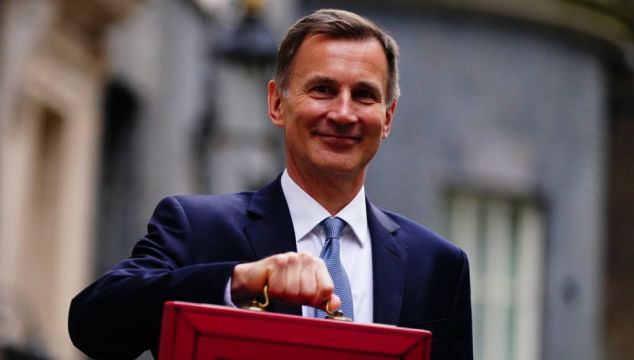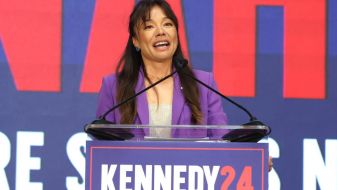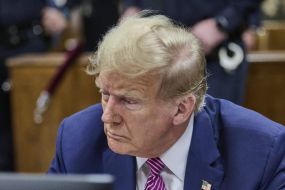British chancellor Jeremy Hunt has defended his budget plan to get people back to work amid accusations he is handing a massive £1 billion tax giveaway to some of the wealthiest people in Britain.
The chancellor said the measures he set out in the UK's House of Commons on Wednesday will have a “transformational” impact on the economy, easing labour shortages which have been holding back growth.
They include a major expansion in the access to state-funded childcare intended to remove one of the key barriers preventing parents returning to the workplace – a move that was broadly welcomed.
However, there was controversy over a tax break to discourage an estimated 15,000 high earners from leaving the workforce early, including the abolition of the £1.07 million lifetime pensions allowance.
Labour said it was the “wrong priority” and they would seek to force a vote on it in the Commons next week.
The measure is primarily aimed at NHS consultants who have been leaving the health service because they say the pension rules mean it is not worth them carrying on.
However, it faced heavy criticism, with the Resolution Foundation (RF) think tank saying it was “hugely wasteful”, costing around £80,000 per job.
It said a tax giveaway on such a scale could see some workers choosing to retire early, or using their now uncapped pensions savings to avoid inheritance tax.
More you think about this policy the worse it is. Rich people now have no overall limit on how much can be put into their pension pots tax free which, because of another big policy mistake, can be passed onto their heirs with absolutely zero inheritance tax
— Torsten Bell (@TorstenBell) March 15, 2023
Advertisement
“It’s a big victory for NHS consultants but poor value for money for Britain,” said RF chief executive Torsten Bell.
Appearing on ITV’s Peston show, Mr Hunt insisted he was “systematically” removing the barriers to work, while the British government was spending five times as much helping with childcare costs.
“So that is one of the big things that the business organisations like CBI have been asking for, and that is a transformational change for our economy,” he said
“Because after the Brexit referendum there was a decision by the country that we aren’t going to fill our vacancies from unlimited, low-skilled migration and this is the way that we address it without doing that.”
Meanwhile, trade unions complained he had found £6 billion to freeze fuel duty yet again while refusing to come up with additional cash for public sector workers seeking cost-of-living pay rises.
There was unhappiness among some Conservative MPs too at his decision to press ahead with a planned rise in corporation tax – from 19 per cent to 25 per cent – although he softened the blow with a three-year temporary break allowing investment in plant and machinery to be written off against tax.
Mr Hunt said it would make the UK the “most attractive investment environment in the world” for the next three years, and that he was committed to making it permanent as soon as he could.
However, he refused to commit to tax cuts ahead of the next general election which is likely to be little over a year away.
“My job is to do the right thing for the economy and then people will see that they can trust the Conservatives to get the economy growing. That’s the electoral dividend. I’m not interested in playing games,” he said.
While the Office for Budget Responsibility – the official forecaster – is no longer predicting the UK will go into recession this year, it warned the country is still facing the biggest squeeze on living standards on record.
Paul Johnson, director of the Institute for Fiscal Studies, said it had been a “political choice” by the chancellor to freeze fuel duty rather than fund pay awards for striking nurses and teachers.
Note what the Chancellor did not mention. Nothing on public sector pay. No mitigation of big income tax rises coming in this April. No more money for public services post 2024.
— Paul Johnson (@PJTheEconomist) March 15, 2023
He warned that households faced an “enormously difficult” period ahead with a series of big personal tax rises due to kick in next month.
The freezing of income tax thresholds, announced by Mr Hunt in the autumn statement in November, will mean basic rate taxpayers will pay an extra £500 in 2023-24, while for higher rate taxpayers it will be an additional £1,000.
“These tax rises may be necessary from a fiscal point of view, but they are an important part of the reason why household incomes are still expected to fall more over the current two-year period than at any point in living memory,” he said.







